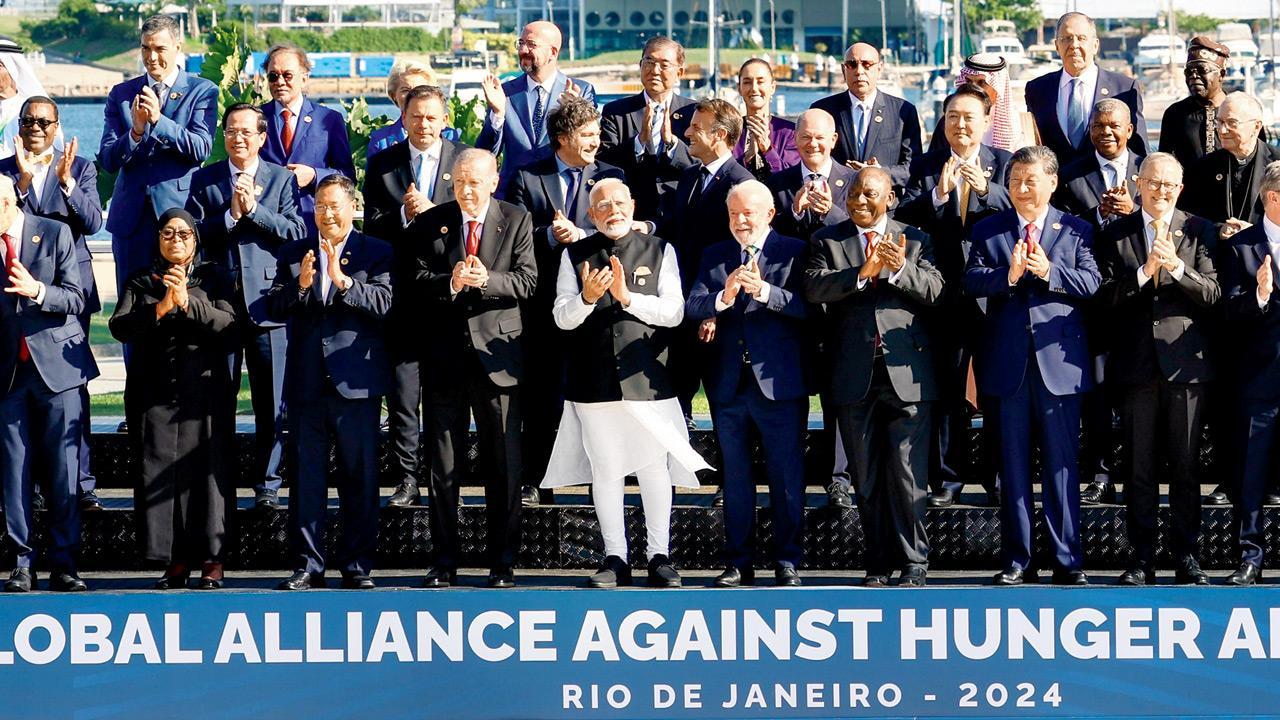
, following a busy first day at the G20 Summit in Rio de Janeiro, engaged in bilateral meetings and several interactions on Monday. Modi shared details of his discussions through a series of posts on X, highlighting his engagements with global leaders including Egyptian President Abdel Fattah El-Sisi, South Korea’s Yoon Suk Yeol, and European Commission President Ursula von der Leyen. On the sidelines of the summit, Modi met with UK Prime Minister Keir Starmer.
“We are eager to work closely in areas such as technology, green energy, security and innovation. We also want to add strength to trade as well as cultural linkages,” Modi said on X. During talks, Modi asserted the importance of addressing the issue of economic offenders from India in the UK.
The two leaders also agreed on the need to make progress on issues related to migration and mobility, as per the statement. Regarding a meeting with , Modi said on X, “We talked about how India and France work closely in sectors like space, energy, AI, and other futuristic areas. We will also work closely to enhance people-to-people linkages.
” In his meeting with Norwegian Prime Minister Jonas Gahr Store, Modi discussed ways to improve investment linkages, particularly in renewable energy, green hydrogen, and the blue economy. Additionally, Modi held talks with Italian Prime Minister Giorgia Meloni, focusing on strengthening defense, security, trade, and technology ties. Modi’s visit to on Tuesday is the first by an Indian prime minister to the South American nation in 56 years.
High Commissioner of India to Guyana, Amit S Telang said that India and Guyana aim to strengthen cooperation in key areas, including agriculture, pharmaceuticals, oil and gas, green energy, IT, education and communications. A joint statement issued G20 leaders urged for while welcoming initiatives that support “just, and durable peace” in the Ukraine-Russia war. “We welcome initiatives that support comprehensive, just, and durable peace, upholding all the Purposes and Principles of the UN Charter for the promotion of peaceful, friendly, and good neighbourly relations,” the final statement read.
.














